Here is a dilemma we all face: Do we need Business Interruption Insurance (BI)?
I have a friend that sells it
While these are two very separate topics of discussion, they are interrelated. One without the other does no one any good.
As your business grows, so does your exposure. One should annually reassess your exposure to liability. Liability exposure comes in many shapes and forms. In this forum, we are solely addressing Business Interruption.
Let’s tackle Business Interruption Insurance; understand what this is, and the consequences if one chooses not to include this in your company exposure policy. The chances that something might happen to you, I suppose is minimal, but it happens. Can you absorb the loss of business, till operations return to normal? Do you have enough cash? How long will it take you to “re-capture” your client base? How are you going to fund your employees, your liabilities, and your fixed costs…..
Per Wikipedia, the following expenses are typically covered under a business interruption insurance policy:
- Profits. Profits that would have been earned.
- Fixed Costs. Operating expenses and other costs are still being incurred by the property.
- Temporary Location. Some policies cover the extra expenses for moving to and operating from, a temporary location.
- Commission & Training Cost. Business Interruption policy essentially covers the cost of providing training to the operators of the machinery replaced by the insurer following the insured events.
- Extra Expenses. Reimbursement for reasonable expenses (beyond the fixed costs) that allow the business to continue operation while the property is being repaired.
- Civil Authority Ingress / Egress. Government-mandated closure of business premises that directly causes loss of revenue. Examples include forced business closures because of government-issued curfews or street closures related to a covered event.
This coverage extends until the end of the business interruption period determined by the insurance policy. Most insurance policies define this period as starting on the date of the covered peril and the damaged property is physically repaired and returned to operations under the same condition that existed prior to the disaster.
A cost that is intrinsic to the claim, is forensic coverage. This typically is not included in the policy. In certain instances, this cost may be classified as Extra Expenses, and I would suggest you get clarity this in writing from your insurance agent.
Unfortunately, ignorance is not a basis when dealing with the insurance adjuster. This is where competency and experience are of prime importance. While we all like to share business with family and friends and sometimes or let’s be honest most times, one feels obliged to place the business with them. This may not be the best policy you ever implemented. In no way am I suggesting your friends or family are not competent, but certainly please ensure they meet your specific needs. Things to consider (which include guidelines from the National Association of Insurance Commissioner):
- Personality – Have conversations with prospective agents. Explain your situation and ask for a quote. Simply asking does not mean you have to work with them. This is a chance for you to get a feel for how they work and if you’re comfortable with them.
- Credentials – Many agents and brokers will have letters behind their names on their business cards. These represent designations or credentials they have earned from various insurance groups or associations. Ask them what these letters mean and what they had to accomplish to earn the credential.
- Licensing – Make sure the agent and the company they are writing your policy with are licensed in your state.
- Complaints –While you’re checking whether the agent and the company are licensed, also check to see if they’ve had complaints filed against them (both the company and agent). You also might check with the Better Business Bureau to see if any consumers have filed complaints – or compliments – about the agents you’re considering.
- Financial Strength of the Company – When evaluating a company, you also want to check its company’s financial rating. There are five major rating services. Each has its own criteria for rating that uses a combination of qualitative and quantitative numbers to assess the company. Generally, a letter rating from A to F is assigned to the company. Be sure to review how the rating agency assesses the company and understand the rating system.
- References – When you’re applying for a job, you provide references, so don’t be afraid to ask a prospective agent for the same. Look to their clients that have experienced losses and are still clients
- Ask Questions – If you’ve had a particularly interesting insurance experience, or have heard of one, ask the agent how they and the company they represent would have dealt with the situation.
- When in Doubt– If you’re not sure what questions to ask or you would like more guidance on how to evaluate a potential agent, contact either your state insurance department, or call me, your trusted outsourced CFO.
- Questions to consider –
- What experience does have in my specific industry?
- From experience what liability exposures are we exposed to?
- In case of a loss, what’s your execution strategy?
- Who’s your biggest competitor?
- What “buying / settlement” power do you have with the carrier?
Insurance generally is not cheap, however, it is a necessity. It’s a cost of doing business. While we shop for better premiums, don’t let the dollar savings affect your judgment. I would strongly suggest that having a better broker, is the key to a successful insurance claim settlement. Last but certainly not least important is choosing an insurance carrier that is fiscally stable and has a good rating.
Ultimately, this decision could have the biggest consequence you may face should you be in an unfortunate situation of encountering a business interruption claim.
